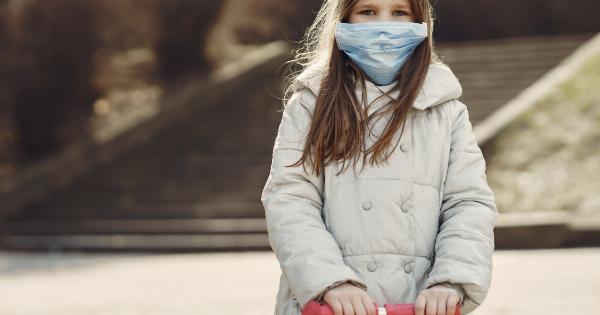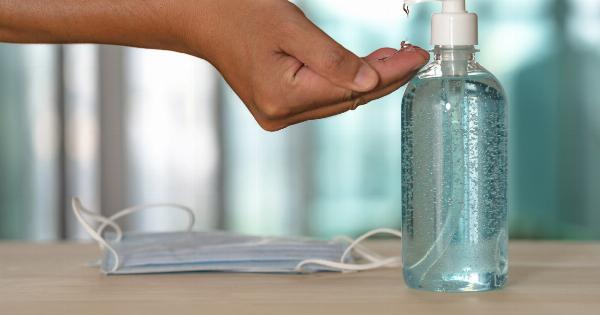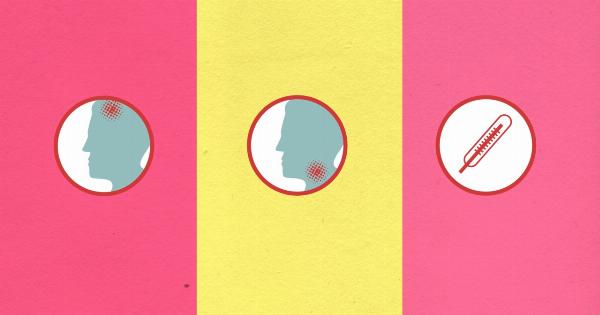It is a common occurrence to catch a virus at some point in our lives. Whether it is the flu, a cold, or a more serious illness, viruses can cause a range of symptoms and leave us feeling miserable.
When you find yourself in this situation, it’s important to take appropriate measures to help your body recover and prevent spreading the virus to others. In this article, we will discuss what you should do when you catch a virus.
1. Rest and take care of yourself
The first and most important thing to do when you catch a virus is to rest. Allow your body to recover by getting plenty of sleep and avoiding physical exertion. This will give your immune system the energy it needs to fight off the virus.
Additionally, make sure to take care of yourself by staying hydrated and eating nutritious foods. A balanced diet rich in fruits and vegetables can help strengthen your immune system and speed up the recovery process.
2. Stay at home and avoid spreading the virus
When you are sick, it’s crucial to stay at home and avoid close contact with others. Viruses can spread easily through coughing, sneezing, or even talking, so it’s important to take precautions to prevent infecting others.
If you need to go out for essential reasons, such as to see a doctor, wear a mask to minimize the risk of spreading the virus. Cover your mouth and nose with a tissue or your elbow when you cough or sneeze, and dispose of used tissues properly.
3. Consult a healthcare professional
If your symptoms worsen or persist for more than a few days, it’s advisable to consult a healthcare professional. They can assess your condition, provide a proper diagnosis, and recommend appropriate treatment options.
During your visit, provide your healthcare provider with all relevant information about your symptoms, including their duration and severity. This will help them make an accurate diagnosis and develop the most effective treatment plan for you.
4. Take over-the-counter medication for symptom relief
To alleviate your symptoms and make yourself more comfortable, you can consider taking over-the-counter medication. Common medications for symptom relief include pain relievers, cough suppressants, decongestants, and antihistamines.
However, it’s important to note that not all medications are suitable for everyone or every type of virus.
Always read and follow the instructions on the packaging, and consult a healthcare professional or pharmacist if you have any doubts or concerns.
5. Keep good personal hygiene
Practicing good personal hygiene is crucial when you have a virus. Wash your hands frequently with soap and water for at least 20 seconds, especially before meals and after using the bathroom.
If soap and water are not available, use hand sanitizers that contain at least 60% alcohol.
Avoid touching your face, particularly your eyes, nose, and mouth, as this can transfer the virus from contaminated surfaces to your body.
Clean and disinfect frequently touched objects and surfaces in your home using household cleaning sprays or wipes.
6. Follow the advice and guidelines from health authorities
Stay informed about the latest advice and guidelines from reputable health authorities, such as the Centers for Disease Control and Prevention (CDC) or the World Health Organization (WHO).
They continuously provide updates and recommendations on how to protect yourself and others from viruses.
By following their advice, you can ensure that you are taking the necessary steps to minimize the risk of spreading the virus and protect your health.
7. Take prescribed medication as directed
If your healthcare professional prescribes medication to treat the virus, make sure to take it as directed. Follow the recommended dosage and complete the full course of treatment, even if you start feeling better before it is finished.
Stopping medication prematurely can lead to a relapse or the development of drug-resistant strains of the virus. If you experience any side effects or concerns regarding your prescribed medication, consult your healthcare provider.
8. Boost your immune system
While there is no guaranteed way to prevent catching a virus, having a strong immune system can help reduce your risk and aid in your recovery.
Maintain a healthy lifestyle by eating a balanced diet, exercising regularly, getting enough sleep, and managing stress.
Additionally, certain vitamins and supplements, such as vitamin C, zinc, and echinacea, are believed to support immune function.
However, always consult a healthcare professional before starting any new supplements to ensure they are safe and appropriate for your specific situation.
9. Practice respiratory etiquette
Respiratory etiquette refers to adopting behaviors that help prevent the spread of respiratory infections, including viruses. In addition to covering your mouth and nose when coughing or sneezing, you can also:.
- Use disposable tissues to blow your nose and discard them immediately after use.
- Avoid close contact with individuals who are sick or showing symptoms.
- Use your elbow to cover your mouth and nose if you don’t have a tissue.
- Regularly wash and sanitize your hands after coughing or sneezing.
10. Stay positive and seek emotional support
Dealing with a virus can be physically and emotionally draining. It’s normal to feel anxious, stressed, or frustrated during this time. Remember to stay positive and focus on your recovery.
Seek emotional support from family, friends, or even professional counselors if needed. Talking about your concerns and sharing your feelings can help alleviate emotional burden and provide you with a fresh perspective.






























